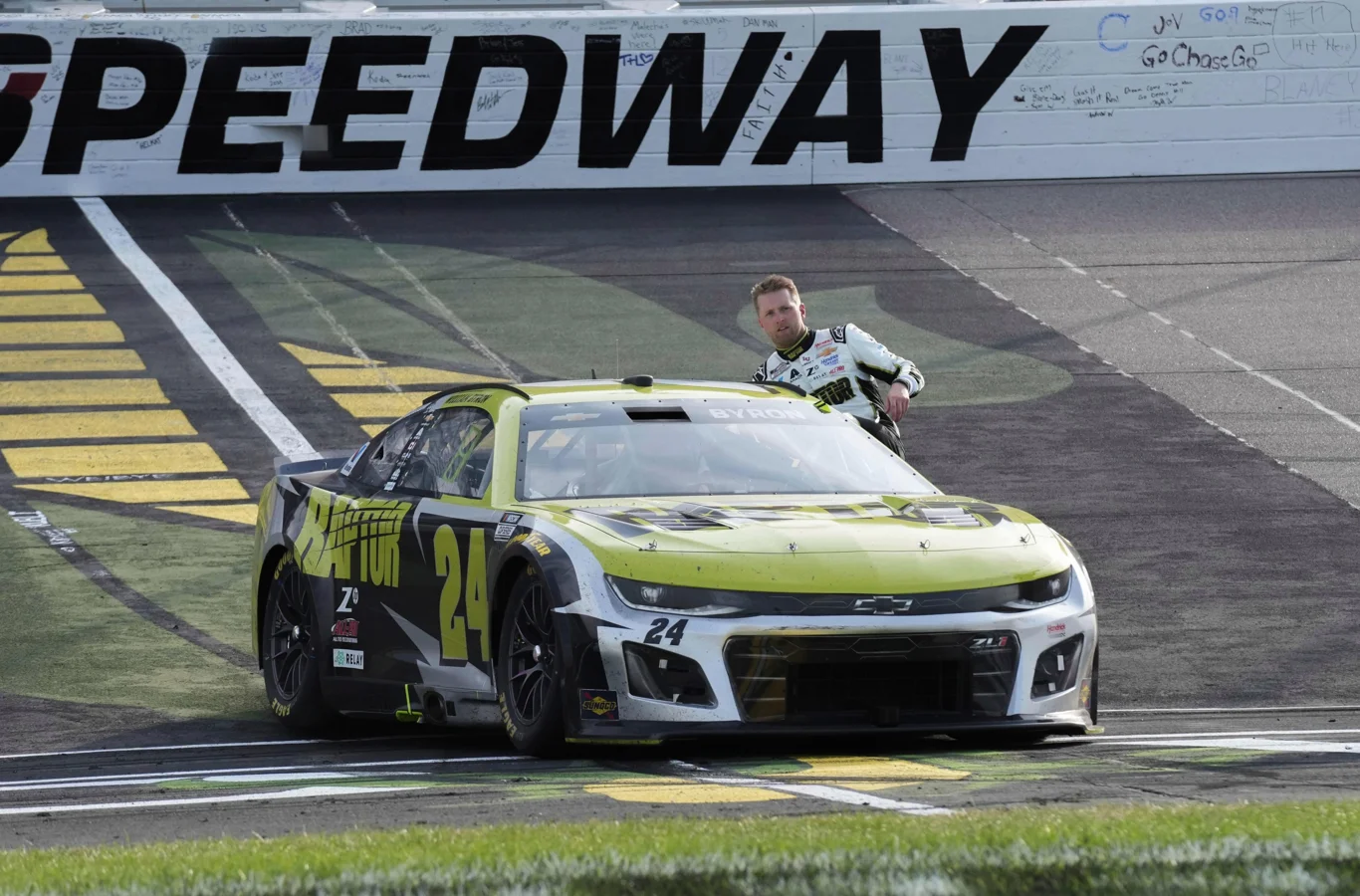William Byron, a prominent NASCAR driver, expressed strong concerns about how
“Talladega Nights: The Ballad of Ricky Bobby”
has shaped public perception of his sport, voicing sentiments closely echoed by teammate Kyle Larson. This William Byron Talladega Nights NASCAR reaction has ignited debate about whether the iconic comedy misrepresents the real nature and professionalism of stock car racing in the eyes of audiences and viewers worldwide.
How Ricky Bobby Became Synonymous with NASCAR
For many fans and even casual observers, the character Ricky Bobby immediately conjures up memories of the comedy hit,
Talladega Nights: The Ballad of Ricky Bobby,
starring Will Ferrell as the brash racing hero. The film, directed by Adam McKay, was a cultural phenomenon upon release in 2006, capturing the competitive tension between Ferrell’s Ricky Bobby and Sacha Baron Cohen’s flamboyant French rival, Jean Girard. The movie grossed $163 million at the box office and coincided with NASCAR’s peak in popularity, with the Daytona race that year attracting a staggering 19.4 million viewers — the highest in the sport’s history.
Kyle Larson Decries Comedy’s Long-Term Impact
Despite the film’s commercial triumph and its beloved status among racing personalities, Kyle Larson has emerged as a critic of its legacy. Reflecting on the movie during an appearance on the “Games with Names” podcast, Larson acknowledged his enjoyment of the film but argued,
I liked the movie. Think it did not do anything good for our sport. I think it turned our sport into a joke, unfortunately.
—Kyle Larson, NASCAR Driver. Larson, the 2021 Coca-Cola 600 winner, pointed out that the exaggerated, satirical portrayal of racers has left a lasting mark:
That’s gotta be one of the most popular racing movies. … But the rest of the world, I feel like that’s what they think of our sport now.
—Kyle Larson, NASCAR Driver.
Larson’s unease centers on how the comedic characterization and outlandish antics in the film have eclipsed the true technical skill, athleticism, and strategic prowess demanded by real NASCAR competition. Instead of appreciating the realities of racing, many casual viewers and even some loyal fans now associate the sport chiefly with the film’s caricatures, as noted by the driver and confirmed by observers within the world of motorsports.
William Byron Adds His Voice to the Debate
The controversy gained additional momentum when William Byron, Larson’s teammate at Hendrick Motorsports, publicly backed these remarks. Responding to the discussion on social media, Byron tweeted his agreement:
100%. Should not be the first thing people think of.
—William Byron, NASCAR Driver. Byron’s statement amplified the sense among current drivers that the film’s lasting cultural footprint often overshadows the authentic, competitive edge of the sport. Both Byron and Larson appear frustrated that the most famous reference for NASCAR in pop culture is, in their view, an overblown parody rather than a celebration of the drivers’ real-world achievements.
A Comedy’s Reach Beyond the Racetrack
While the drivers’ frustration is evident, “Talladega Nights” undeniably left an indelible mark on racing culture and entertainment. The film’s irreverent humor took aim at many facets of NASCAR life, from the southern lifestyle to the world of sponsorship-fueled teams. Notably, racing legend Dale Earnhardt Jr. made a cameo appearance, blending real racing cred with Hollywood satire. Donning his trademark cap and sunglasses, Earnhardt is seen approaching Ricky Bobby to request an autograph after the character’s climactic victory, an image that signaled the film’s deep reach into NASCAR’s inner circles.
The cultural impact has endured, as lines like John C. Reilly’s “Shake and Bake” monologue remain instantly recognizable to fans, emblazoned on t-shirts and referenced during race weekends. For many, it was this film that turned NASCAR into a mainstream touchstone, drawing in new audiences and serving as a bridge to racing for non-traditional fans.
Enduring Catchphrases and Persistent Stereotypes
Nonetheless, the essence of the drivers’ complaints can be traced back to the movie’s unforgettable scenes and taglines, such as Reese Bobby’s persistent reminder,
Always remember, if you ain’t first, you’re last!
—Reese Bobby, Character in Talladega Nights. These moments, beloved for their comedy and quotability, also contribute to the enduring stereotypes and oversimplifications that bother elite drivers trying to elevate NASCAR’s reputation beyond satirical portrayals.
Drivers like Byron and Larson argue that while the comedy grabbed global attention, it did so by distilling a rich, multifaceted sport down to catchy lines and slapstick moments, shaping what many think stock car racing is all about without recognizing the immense skill and dedication of those behind the wheel.
The Ongoing Impact for NASCAR
As the debate around the legacy of “Talladega Nights” continues, NASCAR faces the ongoing challenge of winning over mainstream audiences who may know the sport only as depicted in the film. Byron and Larson’s public criticism signals a desire among drivers to redefine the narrative and highlight the true drama, discipline, and teamwork that define the sport today. For NASCAR, balancing its pop culture visibility with a more nuanced representation remains a complex, unresolved issue that continues to fuel intense, sometimes turbulent conversations both on and off the track.
